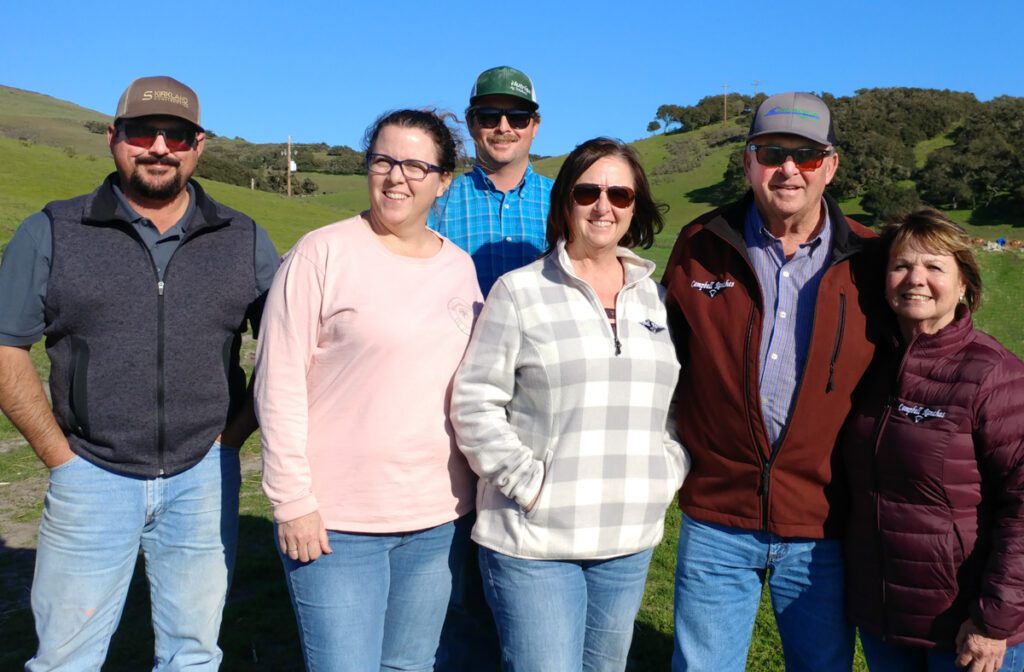We Partner with Landowners
In Santa Barbara County, landowners like you are a vital partner in protecting the landscapes that define our region. We work with landowners to meet your goals and to preserve your legacy of caring for the land. A conservation easement is a permanent way of honoring your family’s commitment to the land—and we’ve been helping landowners find the just-right solution for more than 35 years.

What’s a conservation easement?
A conservation easement is a voluntary legal agreement between a willing landowner and a land trust that protects the conservation values of the land by permanently limiting some uses. Landowners retain many of their rights, including the right to own and use their land, sell it, or pass it on to their heirs. Conservation easements are unique and personal and just like the land, no two are alike. Land Trust Conservation staff works with each landowner to determine their plans for their property, the conservation values of the property, and how best to make sure those resources are protected. The land remains in private ownership and the landowners retain title. Owners continue to occupy and use the land under the agreed upon terms of the Conservation Easement.
The Land Trust for Santa Barbara County reviews each conservation proposal to ensure that the land has recognized “conservation values” that may include any of the following:
- Natural habitat for wildlife, such as oak woodlands, creeks, wetlands, and rangeland.
- Productive farm and ranch land.
- Recognized historic, cultural, or scenic resources.
- Opportunities for public recreation or education.
(It is important to know that conservation easements do not require public access).

In addition to perpetual conservation, financial benefits may also be available to landowners. There are essentially 5 types of financial benefits that may accompany a donated conservation easement. The Land Trust strongly encourages and recommends that landowners secure the advice of a qualified tax advisor and attorney regarding any potential tax implications when considering the placing of a conservation easement.
- Federal Tax Deduction
A conservation easement may be treated as a charitable gift, allowing for the value of the easement to be tax deductible. - Estate Tax Incentive
If certain rights have been granted away, the value of the land is decreased, which lowers the value of the land for estate tax purposes. This can provide a significant reduction in the estate tax burden on family members. - State Tax Incentive
Additional state tax reductions may be available to landowners who donate a conservation easement. - Property tax benefits
A reduction in land value may result in a reduction in property tax assessments. The Land Trust strongly encourages the landowner to contact the County Assessor when considering the placing of a conservation easement and any potential impact on property tax assessments. - Cash Payments
Occasionally the Land Trust will purchase a conservation easement. To purchase the conservation easement, the Land Trust must identify funds from a variety of sources, including local, state, and federal agencies. Sometimes the funding agencies will have their own conservation requirements that must be included in the easement. A landowner who is willing to sell the conservation easement for less than the appraised fair market value increases the possibility that funding can be obtained, and offers potential income tax benefits to the landowner, as the difference between the value of the easement and the sale price may be considered a tax-deductible charitable donation. The Land Trust strongly encourages and recommends that landowners secure the advice of a qualified tax advisor and attorney regarding any potential tax implications when considering the placing of a conservation easement.

The Land Trust is a qualified charitable organization that is authorized to receive the donation of any interest in land. The donation may provide income, property, or estate tax benefits, as well as potential avoidance of taxation on capital gains. A landowner should seek professional legal and tax advice when considering conservation options. Some donations to consider are:
- Fee simple
A landowner may donate the entire fee simple interest in their property to the Land Trust. - Reserved Life Estate
A landowner may donate their property subject to a reserved life estate that allows the landowner and any other identified persons to continue to live on the donated land during their lifetime. - Will-Bequest
A donation via Last Will and Testament assures the landowner that the conservation values of the land will be protected for future generations. Thoughtful estate planning may also help reduce or eliminate potentially devastating estate taxes faced by heirs.
The Land Trust for Santa Barbara County cannot provide legal, land planning, or tax advice to landowners. Landowners should conduct a thorough review of the entire conservation plan with their own legal, tax and real estate advisors. The Land Trust strongly recommends that all documents be reviewed by the landowner’s attorney.
